Facebook is a very invasive platform that fails at transparency. Now they’re promoting a product that’s designed to be invasive without transparency — spy glasses. What is the best defense against such nonsense?
The simple answer is a ban.
Bans on sunglasses already were a good idea to consider if you care about transparency and trust.
Unlike their American counterparts, UK soldiers removed their shades, enabling them to make eye contact with locals and build trust.
It’s really not that far-fetched to enact such a ban. The British police already banned sunglasses during duty to help protect and serve public interest.
…unless medically prescribed, they must otherwise ‘be removed when contact is made with members of public’.
In the given military and police instances, there’s an underlying implication that glasses, as a form of technology, have the potential to disrupt power dynamics in social situations. When glasses are discreetly integrated with surveillance capabilities, it raises crucial questions about permission and consent.
Now, focusing on the Facebook example, it stands out as a scenario marked by extremely poor choices in both security and product management.
Perhaps one of the most disturbing angles to this story is how Facebook claims to have “engineered” their best “alert” for a camera on someone’s face being in surveillance mode, yet it’s a tiny indistinguishable pinpoint of light easily removed with sticker or paint.
Can you even find it below?
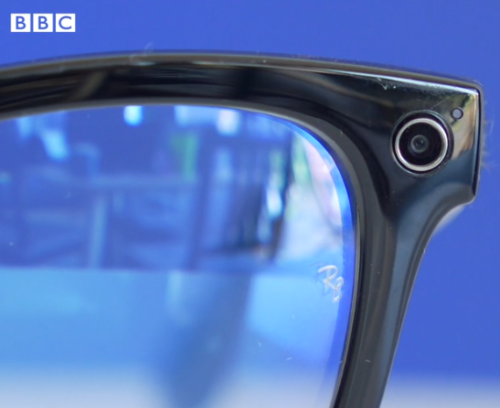
When the lens is more prominent than the thing designed to alert you that there is a lens, you know it’s totally backwards thinking.
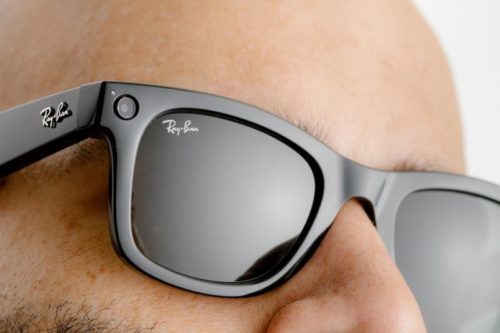
The BBC also points out how Facebook arguably took a 2016 Snapchat design and made a far worse version, switching to being spy design — less obvious about being a giant surveillance tool.
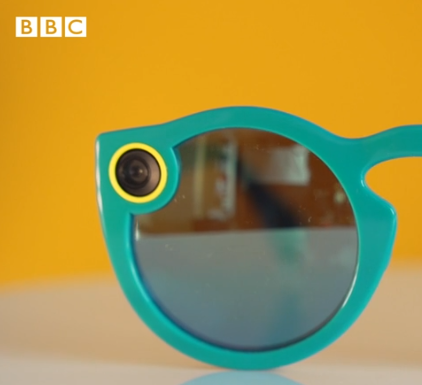
What’s that you say? A different shape of the frame? Facebook has that covered too.
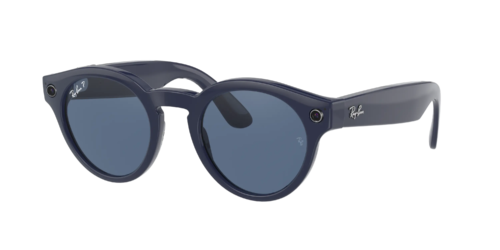
See how obviously worse their design was, while copying someone else’s? And they even copied the product name. This is how Snapchat announced their product in 2016.
You can also export Snaps and Stories, and share them outside of Snapchat on almost any platform you like! Note: At the moment, you can only export Stories that have 20 Snaps or less.
So Facebook called theirs “Stories” too. Either Snapchat is the silent OEM to this or there’s an egregious lack of morals and talent at Facebook, or both.
The story format, originated and made famous by Snapchat, has been on Facebook’s radar for some time, with the Menlo Park-based company first testing a Snapchat Stories clone within Messenger in September 2016.
The real and significant difference, therefore, is that Facebook took an idea for a fun/frivolous and obvious spy camera with bright distinctive coloring/marking to denote a camera and… redesigned it just to eliminate any possibility of consent from a victim.
Be honest now, can you tell whether “alert lights” are turned on here?
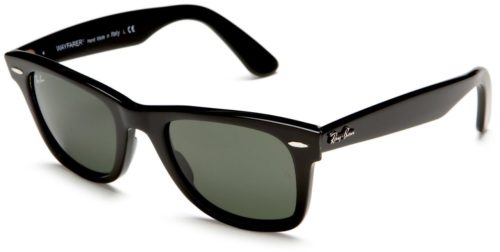
RayBan always had a bright contrast marker on its face, so whoever thought it made sense a bright contrast marker in the same spot would be a reasonable “alert” … is either a design idiot or being intentionally evil.

It’s like some Facebook executive said “hey guys, listen I used to dox women in college and abuse them for profits by uploading videos of them without consent so let’s make some ‘cool-guy incel’ glasses to enable domestic terrorism”… and then CEO Zuckerberg replied with “ME TOO, LET’S DO IT!”
Sadly, I’m not really exaggerating here. Another disturbing angle to this product is exactly this kind of discussion found on the “Incel” (misogynist domestic terror cell) wiki:
Giovanni became angry at Cho for not taking off his sunglasses… Cho filmed Giovanni, possibly to expose her contemptuous behavior towards Cho. However, a few female classmates complained that he was filming them. One female said that he was filming her legs. Cho was kicked out of class due to the complaints…
Stalking was legal in the USA until the 90’s. The first state to criminalize stalking in the United States was California in 1990 as a result of numerous high-profile stalking cases in California, including the 1982 attempted murder of actress Theresa Saldana, the 1988 massacre by Richard Farley, the 1989 murder of actress Rebecca Schaeffer, and five Orange County stalking murders, also in 1989.
Who was this Cho? Seung-Hui Cho was the 2007 mass murderer at Virginia Tech College.
And so who wanted these glasses? Cho.
To put it bluntly, Facebook may as well have named this product after Cho as it fits his narrative exactly.
About 80 per cent of the victims in spy cam cases are female, while the overwhelming majority of perpetrators are male. In 2016, for instance, 98 per cent of perpetrators in spy cam cases were men.
Facebook is so historically bad at facilitating rampant abuse of people, including mass atrocities while repeatedly dismissing experts and consent, I’m actually surprised they added some useless pin prick of an “alert” light at all!
Credit goes to a lawyer, apparently:
Himel told BuzzFeed News that the LED light was a feature they ADDED after consulting with a handful of privacy groups… [Facebook funded lawyer] Greenberg said there is a real privacy risk to bystanders, and there hasn’t been a product exactly like this before…
How could Greenberg say that?! Come on, everyone knows this is a rehash of ideas decades old.
Here’s another comparison to what intentional spy glasses have looked like for MANY years.
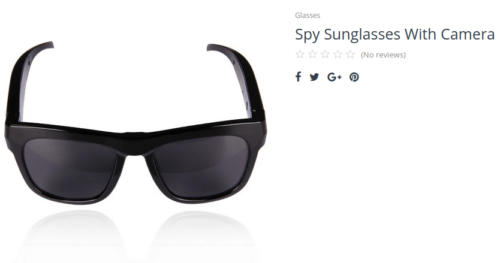
Spies and investigators who would buy such spy glasses are in theory well aware how recording someone without consent is an intentional breach of personal security (invoking professionalism, authorization and serious legal questions).
Joking around with authority roles should not be too easily confused with actual professional use:

Joking aside, let me be clear here.
Facebook has TERRIBLE user experience engineering. This is them pushing the future of privacy into darkness of unethical power transfers, where they promote wealthy elites taking away others’ privacy as a form of status.
Here is how Wall Street reported it.
WSJ’s Joanna Stern tested them, and they looked so normal, very few people knew she was recording.
Not good.
The ENTIRE face of the glasses could illuminate to give people a very clear indication the cameras are on, yet they went the exact opposite direction.
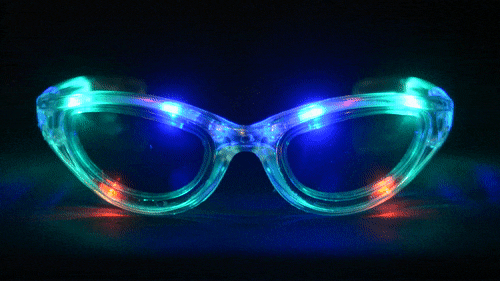
Their tiny pin-prick concept is a privacy disgrace, a consent disaster. The design is a complete failure of security and transparency fundamentals.
It’s anti-privacy, and it deserves a total and complete ban, which RayBan brought upon themselves by getting in bed with this “Incel” oriented product for abuse of the public.
Maybe call it a RayBanBan to prevent an erosion of trust and safety by the unapologetic predators running Facebook, yet ultimately it’s Facebook that deserves the ban.
The bottom line is this:
As a nation, we will never be secure if we don’t value girls’ security.
Combined with this:
An undercover investigation by BBC News Arabic has found that domestic workers are being illegally bought and sold online in a booming black market. Some of the trade has been carried out on Facebook-owned Instagram, where posts have been promoted via algorithm-boosted hashtags… “This is the quintessential example of modern slavery,” said Ms Bhoola [UN special rapporteur on contemporary forms of slavery]. “Here we see a child being sold and traded like chattel, like a piece of property.”.